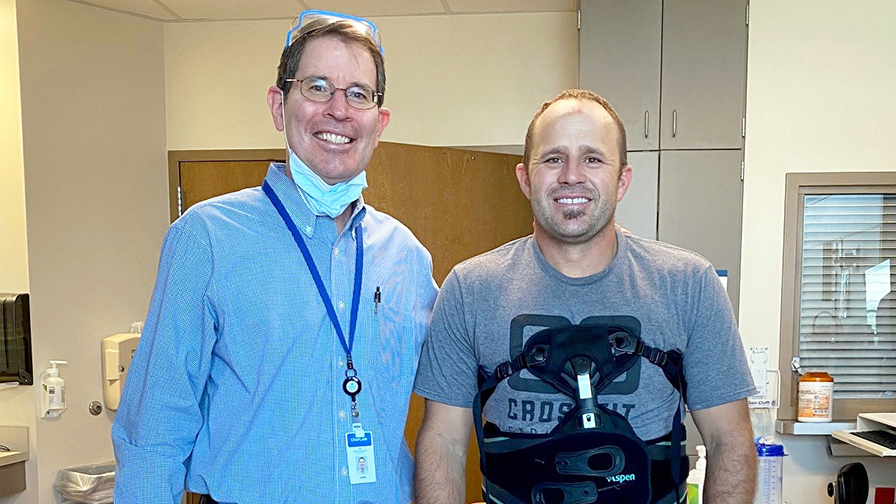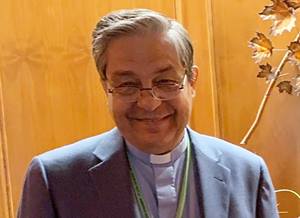

Chaplain Jay Beyar pauses in the meditation room at St. George Regional Hospital.
Intermountain’s 26 chaplains provide emotional and spiritual support to patients, their loved ones, and caregivers—and their work has increased significantly during the COVID-19 pandemic.
“It’s been dramatic for about 18 months,” says John Bush, pastoral care coordinator at Utah Valley Hospital. “Yesterday I was called to the ICU floor where a young mother of 31 had just passed. As I was coming out of the elevator, her four-year-old was crying, ‘I miss my mommy.’ My role was to sit with the family and help them grieve.”
In addition to helping patients, chaplains have spent a significant amount of time supporting caregivers over the past year.
“I’m finding out how important it is to be available for our staff,” says Ronda Weaver, pastoral care coordinator with Utah Valley Palliative Care. “Sometimes caregivers will walk out of a patient’s room, and I’ll ask, ‘How are you?’ and they’ll just need to talk. Or I’ll be on the floor and they’ll pull me over and express, ‘Oh my gosh, she’s so young,’ ‘I can’t go back into that patient’s room,’ or ‘I’m just so tired.’ I listen. That’s really all I can do, and they need to be heard.”
Intermountain chaplains have extensive training and education in clinical pastoral care as board-certified, spiritual care specialists. They work collaboratively with healthcare teams either in hospital settings, through hospice, or with palliative care.
While we may think of chaplains in a religious context, Alan Amos, chaplain at McKay-Dee Palliative Care, says chaplaincy reaches beyond religion.
“When most people think of a chaplain, they think of a bishop, elder, pastor, or priest. But that’s not what we do,” Alan says. “Our job is focused on spirituality—what brings meaning, purpose, and value to a person’s life.”
A chaplain’s work varies daily depending on individual needs.
“My work is unique with every individual,” says Mike Jenkins, a Provo Hospice chaplain. “I’ll do a spiritual assessment when a new patient is admitted: Is there a faith affiliation or not? Is that important to them? What support do they have from their faith community? What actions can I take to support that?”
Jay Beyer, St. George Palliative Care chaplain, says his work as a chaplain has given him a greater appreciation of different backgrounds.
“It has taught me to be much more respectful of people in general,” Jay says. “It’s helped me to realize that everybody has a different perspective or situation they’re coming from, and to not be as judgmental. Everybody has a story and you often have no idea what it is.”
When patients come to Intermountain in physical distress, they often have spiritual and emotional distress as well. Though their numbers may be small, chaplains provide a calming influence to help fulfill Intermountain’s healing mission.

